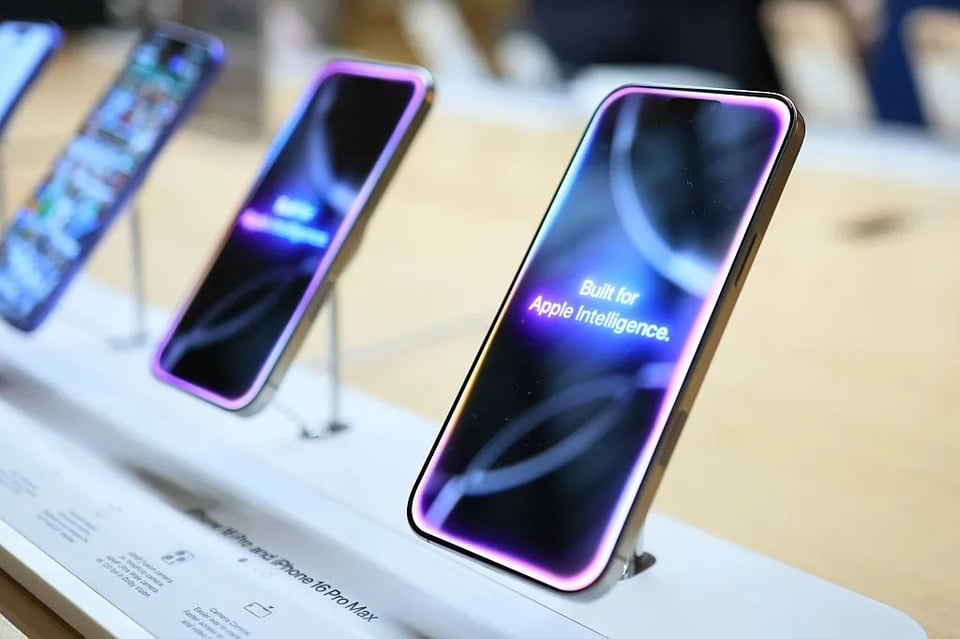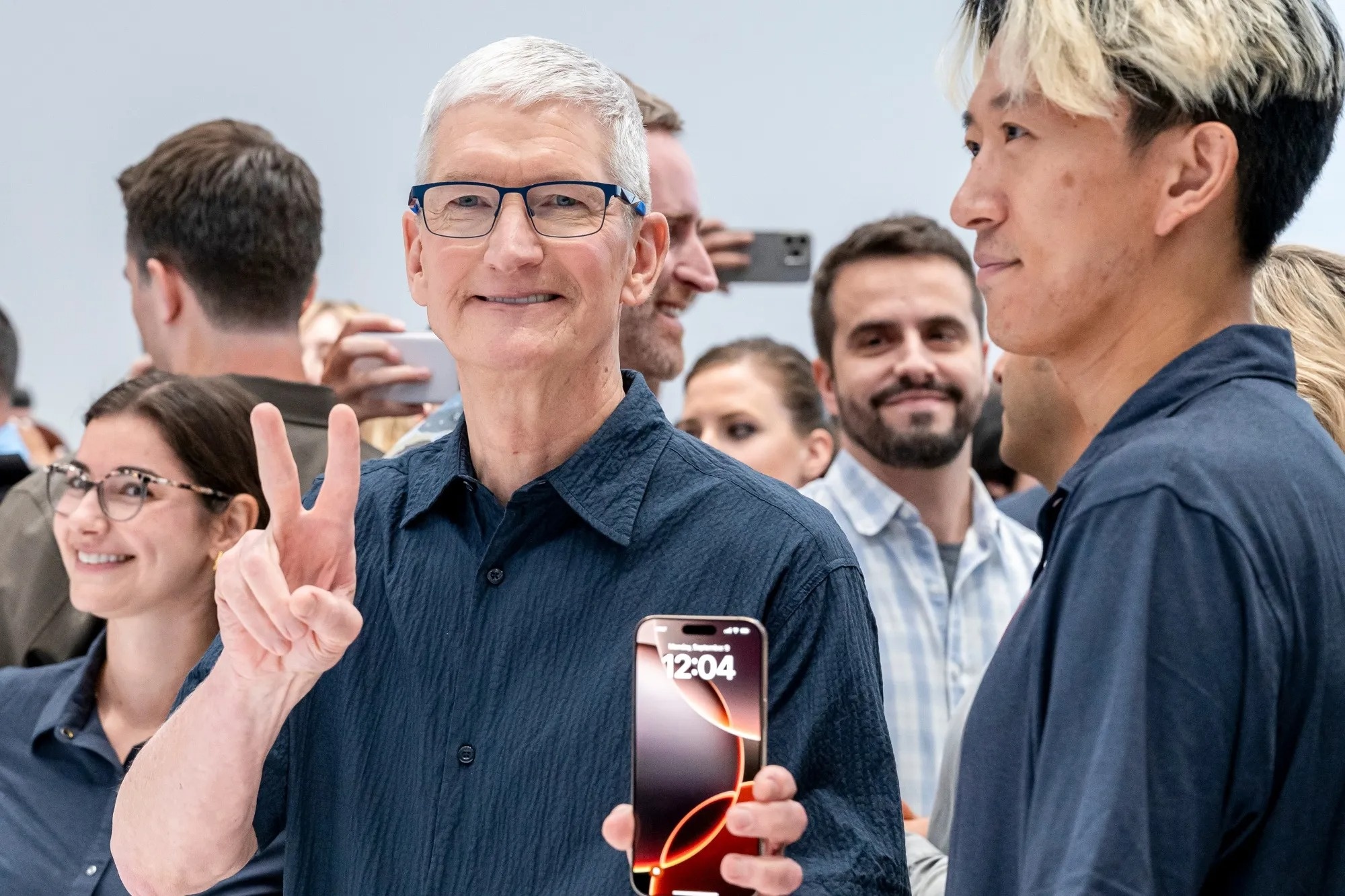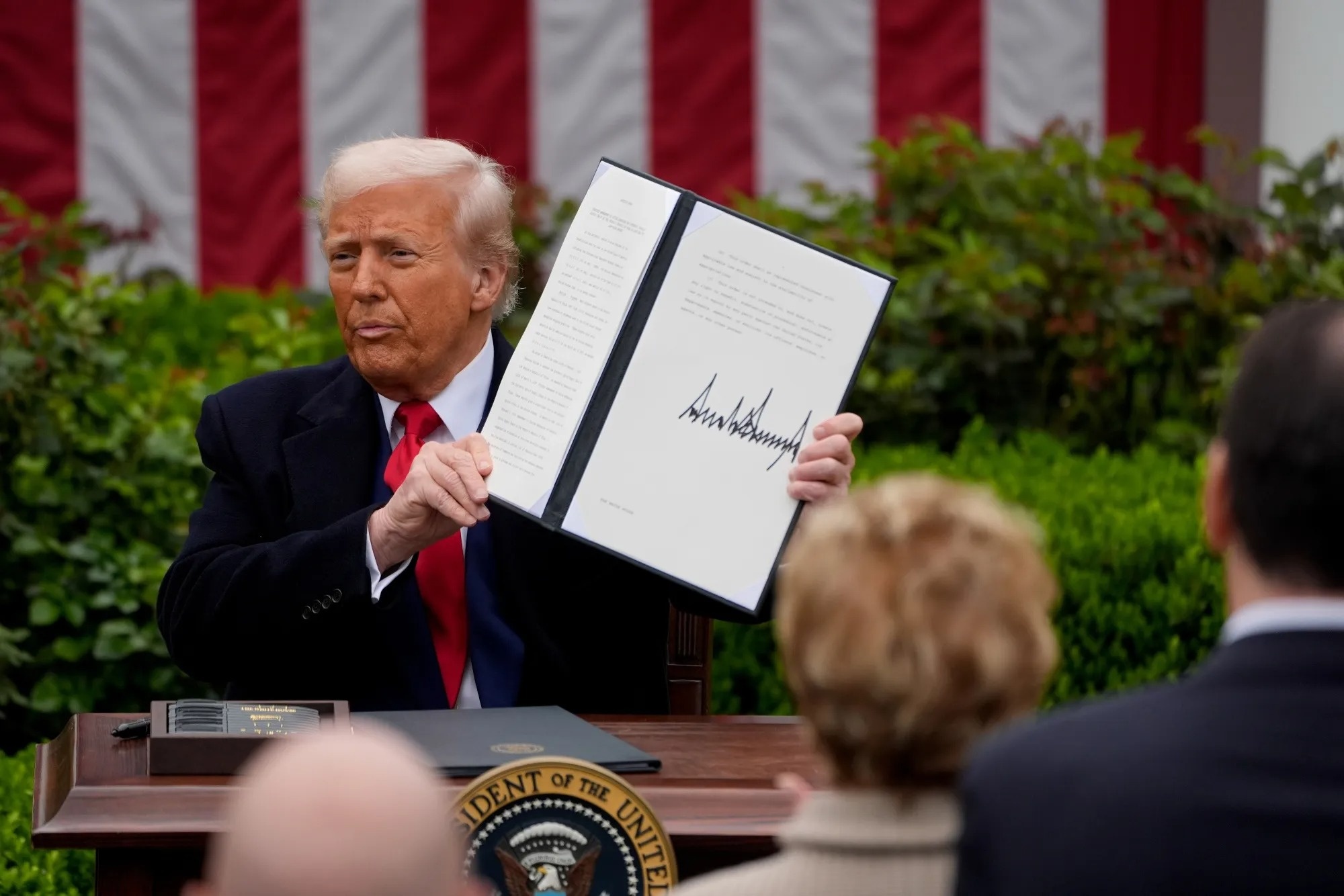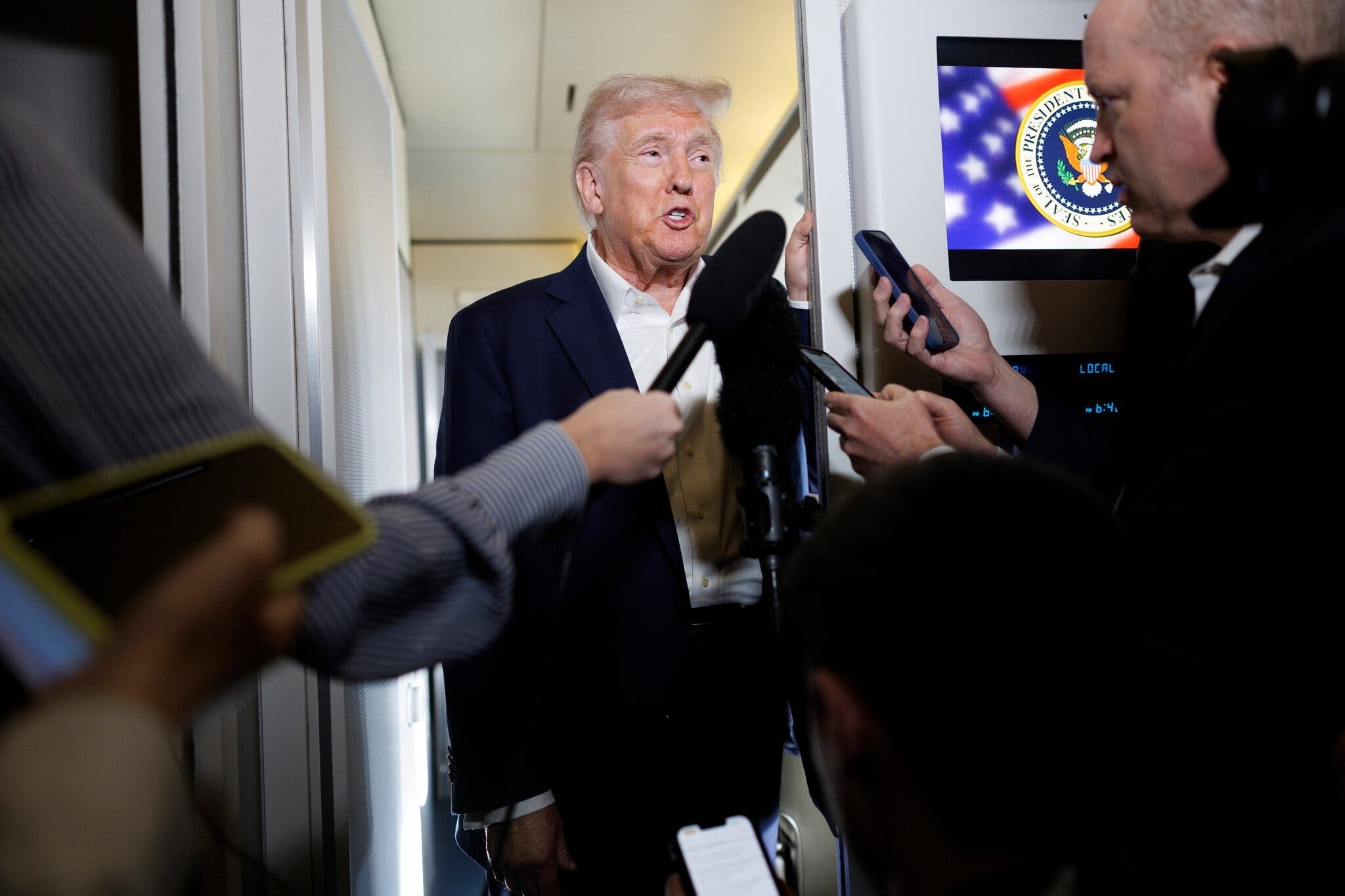 |
The iPhone 16 is displayed in an Apple store in New York (USA). Photo: Bloomberg . |
According to guidance from the U.S. Customs and Border Protection (CBP), smartphones and computers are on the list of technology devices and components exempt from tariffs set by President Donald Trump.
The guidelines were issued on the evening of April 11th (Vietnam time) after President Trump imposed a 145% tariff on goods imported from China. Some of the exempted items include semiconductors, solar panels, flat-screen TVs, flash drives, memory cards, etc.
Although it may only be temporary, the tax exemption policy is seen as positive news for many tech companies like Apple, which faces the prospect of increased iPhone prices due to tariffs.
Apple breathes a sigh of relief over the weekend.
According to analysts, the tariff exemption list is a victory for many businesses, including Apple, which manufactures most of its devices in China. Evercore ISI estimates that 80% of iPads and over 50% of Mac computers are assembled in the country with the world's largest population.
“This is a dream scenario for tech investors. Smartphones and chips being tax-free is a game-changer given the tariffs imposed on China,” Dan Ives, global technology research director at Wedbush Securities, told CNBC .
Ives likened the tariffs to "a dark cloud hanging over the tech industry" since their announcement, because this is the sector that has been most significantly impacted.
"I think the CEOs of the big tech companies have spoken out. The White House needs to understand and listen to the situation that this would be the end of the world for big tech businesses if (the tariffs) go into effect," Ives emphasized.
 |
Tim Cook, Apple's CEO, at the iPhone 16 launch event. Photo: Bloomberg . |
Most iPhones are manufactured at Foxconn's complex in Zhengzhou, China. Speaking to the Financial Times , some workers said production at the factory was proceeding normally, but they remained concerned about the impact of tariffs and the trade war.
"Big tech companies like Apple, Nvidia, Microsoft, and the tech industry in general can breathe a sigh of relief this weekend."
"The exemption policy is a major step forward for the US tech industry and the most optimistic news we could hear this weekend," added the analysts at Wedbush.
Chip manufacturers benefit.
Semiconductors and integrated circuits are also on the list of tax-exempt products. These are products that are largely manufactured in Asia due to lower costs. According to CNN , some of the semiconductor companies that benefit include TSMC, Samsung, and SK Hynix.
"All products that fall under these listed terms will be exempt from tariffs," the CBP announcement stated.
In fact, the original list of duty-free products already included some semiconductor components, including CPUs. However, that list did not include GPUs, a crucial component for AI data centers. GPUs were only added in the latest CBP guidance.
Another important detail on the list of tax-exempt items is semiconductor manufacturing equipment from ASML (Netherlands) and Tokyo Electron (Japan). These tools are essential for building chip manufacturing plants.
 |
President Trump signs an executive order during the tariff announcement in the Rose Garden on April 2nd. Photo: Bloomberg. |
Chad Bown, a senior fellow at the Peterson Institute for International Economics , noted that this move is similar to the tax exemptions on smartphones and consumer electronics that Trump enacted in 2018 and 2019.
"We need to wait and see if this tax exemption will be maintained, or if the president will reverse the policy again in the near future," Bown commented.
According to The Verge , tariffs have caused many products to increase in price in the US. Some new Sony TVs are more expensive, while OnePlus has also quietly adjusted the price of its smartwatch without explaining the reason.
Other companies chose to remain silent, waiting for new policies. For example, Nintendo postponed the US pre-order date for its Switch 2 console but kept the price at $450 , while Apple reportedly rushed to import 600 tons of iPhones from India before tariffs took effect.
Challenges remain.
According to Reuters , the exemption of tariffs on certain items shows that the Trump administration has recognized the negative impact of tariffs on consumers, especially on popular products such as smartphones and laptops.
Global markets have been shaken since Trump announced tariffs. Apple's market capitalization lost over $640 billion . Some estimates suggest that iPhone prices in the US could rise to $3,500 if tariffs are implemented.
Stocks experienced a sharp sell-off, creating instability on Wall Street. Trump's tariffs also sparked a rapidly escalating trade war with China.
Analysts also warn that the cost of tariffs could be passed on to consumers. This fear has led many Americans to rush to buy expensive products out of concern about price increases, such as cars, electronics, and even iPhones.
At the time, the Trump administration argued that tariffs would create more manufacturing jobs in the U.S. However, some companies with complex supply chains found it difficult to move their factories to the U.S., not to mention the challenges of finding workers and higher costs.
 |
President Trump speaks aboard Air Force One on April 11. Photo: New York Times . |
According to CNBC , the negative market sentiment may be the reason the White House is taking some measures, including postponing retaliatory tariffs for 90 days on most countries except China.
However, tech companies may not be out of the woods yet. According to Bloomberg , this list of exemptions stems from the initial policy of not imposing additional taxes on certain sectors to avoid overlapping tax rates. Overall, the tariff exemptions may only be temporary.
This news agency suggests that Trump may be preparing specific tariffs for certain technology products, expected to be announced in the near future.
"The administration is expected to launch a new investigation into semiconductor imports. This will lead to a new tariff schedule for chips in the coming weeks," Bloomberg reported.
Source: https://znews.vn/chien-thang-danh-cho-apple-post1545418.html






![[Photo] Standing Committee member of the Party Central Committee Tran Cam Tu presents the Decision appointing the Secretary of the Party Committee of the Ho Chi Minh National Academy of Politics.](/_next/image?url=https%3A%2F%2Fvphoto.vietnam.vn%2Fthumb%2F1200x675%2Fvietnam%2Fresource%2FIMAGE%2F2026%2F02%2F02%2F1770039902160_le-cong-bo-bt-hvctqg-11-7880-jpg.webp&w=3840&q=75)





















































































![OCOP during Tet season: [Part 3] Ultra-thin rice paper takes off.](/_next/image?url=https%3A%2F%2Fvphoto.vietnam.vn%2Fthumb%2F402x226%2Fvietnam%2Fresource%2FIMAGE%2F2026%2F01%2F28%2F1769562783429_004-194121_651-081010.jpeg&w=3840&q=75)







Comment (0)